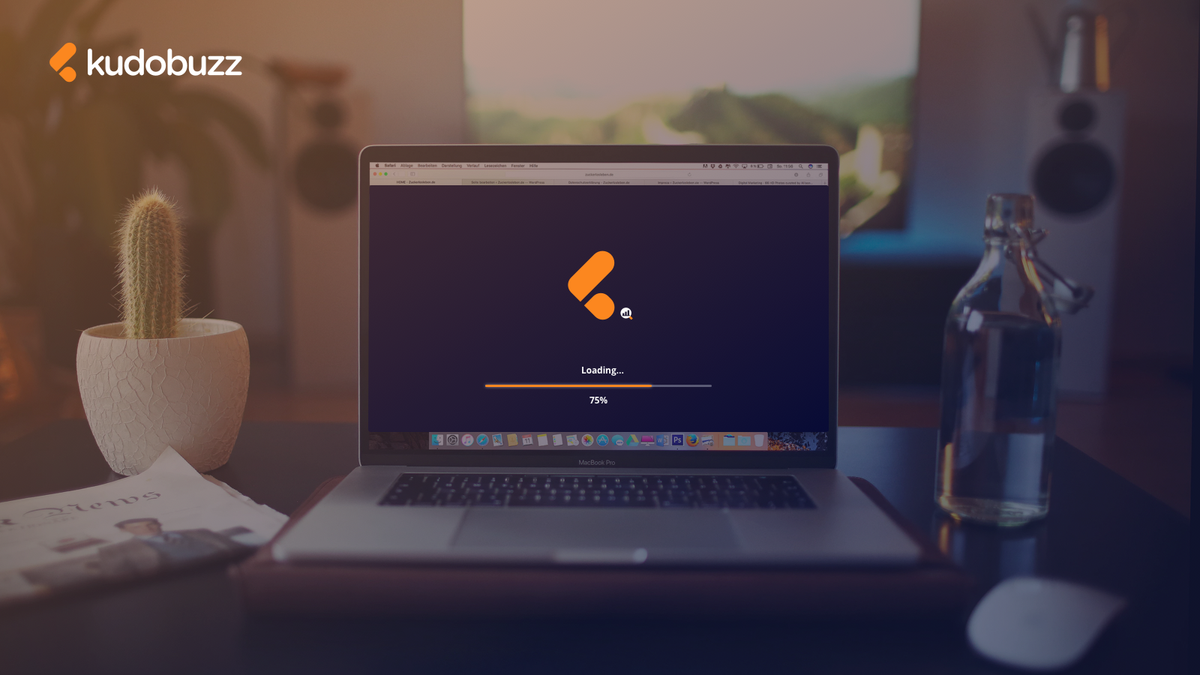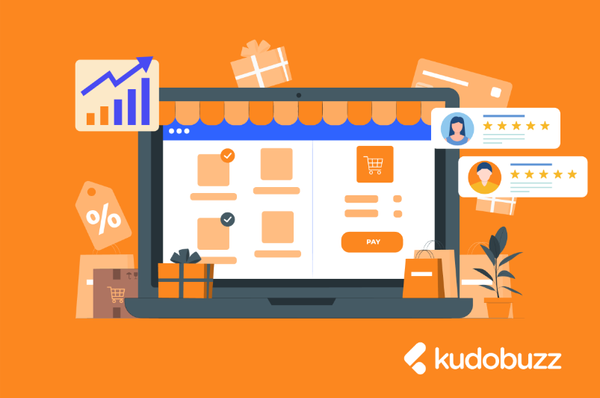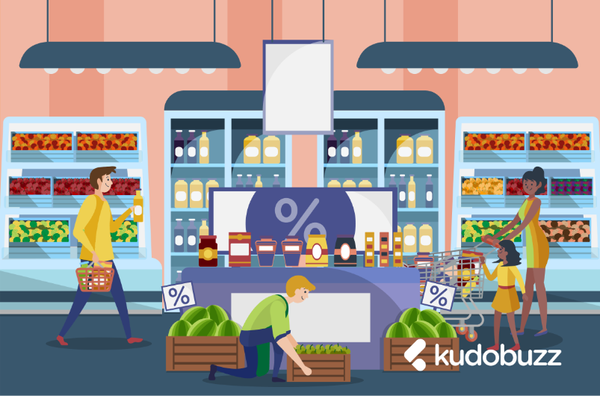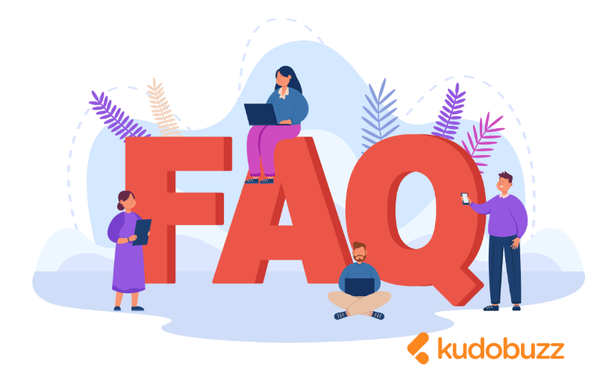The speed of your website’s loading time is one of the critical elements that should not be missing when it comes to making an SEO checklist for your store.
While many eCommerce merchants always pre-occupy themselves with how long it takes for their content to rank, it goes without saying that 1 in 4 visitors will leave a site if it takes more than 4 seconds to load.
This means not ensuring fast loading speed for your site will lead to losing money because faster pages have been shown to increase visitor retention and loyalty. Plus, making your pages load faster also has a positive influence on your search engine rankings.
According to a Microsoft speed specialist, Harry Shum, 0.25 seconds of difference in page load time whether faster or slower is “the magic number dictating the competitive advantages for online businesses”.
This is why you should make it a priority to ensure the time it takes for your web pages to load is drastically reduced. I’m going to show you how you can make your site load in a microsecond to help you delight your site visitors.
What’s Page Speed Optimisation
Page speed is basically a measure of how long or the duration it takes a site to load from a hosting server onto a user’s browser when he/she makes a search query. Optimizing the speed of your page means ensuring it loads faster for browsers or your site visitors.
Site speed is a bit similar to page speed. But while a site speed specifically refers to the speed at which your site loads as users go through it, a page’s speed focuses on-page attributes and how to optimize specific page speed for search engine ranking performances.
Load time is the length of time or duration for a content to display when a user clicks on a link on your site. According to a study, 74 percent of users accessing your site with mobile devices would abandon a requested page if it takes more than 5 seconds to load. Another study also found that every 100-millisecond delay in website load time can hurt conversion rates by 7 percent.
In short, your web visitors love fast websites. The infographic below further highlights the reasons why page speed matters to your users.
Factors that Slow Down Loading Time of Pages
Your website could slow down due to a number of factors such as the following:
Using too many HTTP Requests
When a site has too many HTTP requests to its server, it will slow down its load time. Your site visitors can make a request for certain files from your websites such as HTML, CSS, and JavaScript. When this happens, their browser will make the request for the files from the server by using the HTTP protocol and your server will then transfer the requested file(s) to the browser. However, a lot of HTTP requests to the server will slow down your site’s load time. The best way is to combine CSS files together, minimize the elements on each page or just delete irrelevant images.
Too many third party scripts
Your website can slow down when you have excessive third-party scripts or plug-ins such as apps and widgets. Even though third-party scripts are helpful in making a site more dynamic, interconnected, interactive, as well as improve the overall functionality of your site, too many third party scripts can slow down the loading of pages. As a merchant, you need to audit your third-party scripts and delete the ones that are not living up to expectations or are not being used. You can also stop scripts that are rendering loading time longer.
Using Unreliable CMS
A content management system (CMS) is basically a software application or a set of related programs that are used to create and manage digital content. The popular ones are WordPress, Drupal, Joomla, among others. While CMS is generally good, it may happen that your website will slow down if you’re using less popular ones that are not tried and tested. The trick is getting CMS that will work perfectly without giving you problems.
Computer Performance
Sometimes, it may not be your fault or something under your control that will cause your website to slow down. A user may find your site to be slow if his or her computer hasn’t been updated in a while. Specs of computers keep evolving and new devices have faster speed. So, if your users are still glued to their old computers, they may find it difficult to get search results smoothly.
But if your site visitors are using the latest computer devices and yet their internet slows down very frequently, they can try restarting their routers. Users should try to manually unplug their routers and plug them back in or just turn their computer device off and on again to fix the problem. However, users should try and wait for at least 10 seconds before plugging their routers back in because computer hardware takes some time reset.
Computer Virus Attack
Your users too could download something they shouldn’t have downloaded and ended up with malware on their computer. Malware is a computer virus or ‘malicious software' designed to infiltrate and damage computers without the users' consent. It can hijack bandwidth and slow down the internet connection. There are antivirus softwares that could secure computer devices from such threats.
Enabling Hotlinking
Hotlinking involves allowing other websites to use content like images and other multimedia files that are hosted on your server. So instead of other users pressing save and then upload these files, they will just put the html code you provide on your site and then have the files they want to show up on their site.
When you enable hotlinking to your site, it means other people will be using your server from their website and as more people are hooked on your server, it will lead to server load for no reason which will slow down your site load time.
Too Many Redirects
Your site may slow down when you create a redirect to link a specific address to different URLs. This means searchers who type the old URL will now be redirected to the new one but they will have to wait for the page essentially to load twice before the search result is displayed. So if you set up too many redirects, it means you’re increasing the load time for those pages.
Additionally, broken links in your JavaScript, CSS and image URLs can slow down your website for your users.
Disabling Cache
Storing static files such as HTML documents, images, media files, CSS, php and JavaScript files for easier and faster access is what’s known as Caching.
When you enable cache, first-time visitors to your site who make a request for these files will have them stored in the computer’s hard drive in a cache or temporary storage file. When the same visitors make a request for the same files in the future, they would be quickly delivered to the person making the request without having to retrieve each and every file all over again.
This means enabling your browser caching will increase your site’s speed which will delight your visitors.
Connection Speed
We are living in an era where internet plans or services keep improving. We have advanced from 3G to 4G with the UK and other advanced countries are set to launch 5G services. So essentially, users with a 4G network will have a faster page load time than those with 3G. In the same way, some internet providers may have a stronger internet service than others which will greatly influence the load time. In view of this, it will not always be the fault of the merchant. You may consider switching to a better internet plan.
Not Optimizing your Database
CMSs like WordPress can trap your database with tons of files. For instance, if your plugins save logs, statistics and user data, it will eventually render your website slower. If you also enable your WordPress post revisions, pingbacks, and trackbacks, it will also slow down your site. Merchants need to optimize their databases on a regular basis to ensure these files do not end up slowing down the load time of their website.
Large Images
But of all the factors that cause slow loading web pages, the biggest culprit is perhaps large images. Bulky images slow down websites. This is because large images take longer for web servers to generate a page which leads to longer load time. Minimizing images can improve the speed of page loading. Hence, to have a faster page load time, images need to be compressed.
Luckily, there are a good number of apps out there that can assist merchants to reduce the size of large images on your site. I recommend the Kudobuzz SEO app to every eCommerce merchant because of its flawless features.
The Kudobuzz SEO App
Now we know that large images slow the loading time of websites which does not give a good user experience. Slow-loading web pages also affect SEO since search engines give low ranking scores for slow loading sites. Let’s take a look at the Kudobuzz SEO app and how it can help you improve the speed of your site to delight your customers.
The app has an optimization feature that perfectly compresses the sizes of all big images on a website to ensure the faster loading time of your store. It does this by identifying all large images on your site and then gives you the option to compress them to suitable sizes in one button click. The good thing about this app is that it compresses these images on your store while maintaining the high resolution and quality of the images.
In addition to compressing images on your site, the image optimization feature also adds ALT texts to all images on your store. If you don’t know already, search engines require alternative text to make meaning of images on your site. Adding ALT text to images is a good way to improve your Google image search ranking.
Apart from boosting the speed of your site, the app has many other useful features that can help online merchants identify and fix all SEO related issues affecting their sites such as the following:
The Kudobuzz SEO app detects and resolves all broken links to your site. Broken links are when a page on your site is not available or the URL can no longer be found and therefore, showing ‘404 page not found’ to users who click on the link or URL. When you have a lot of “404 errors” on your site, it can lead to poor SEO rankings for your site which means your searchers may not easily find you in online search results.
The Kudobuzz SEO app also uses smart intelligence to suggest words and sentences used for your page title and descriptions to boost your store’s search engine performance. The app guides you on the preferred length of the text to use and whether you have incorporated the keywords in the title and descriptions appropriately.
Another useful feature of the Kudobuzz SEO is that it increases how fast your store is indexed by regularly submitting your sitemap to search engines by just a click. A sitemap is basically a list of pages on your site and search engines use sitemaps to know the links on your site. This information helps search engines to index or reindex pages on your site to boost your SEO rankings. If your site doesn’t have a sitemap submitted, Google and other search engines will take longer in indexing it.
In short, the success of your eCommerce business is heavily related to the speed or the load time of your site. As explained above, a slow loading website will discourage users from coming to your site. It will also negatively affect your site’s search engine optimization — meaning your store will become less visible to users searching for your store on the internet. Luckily, the Kudobuzz SEO app has been tailored to help eCommerce merchants to compress images on their site to help them enhance the speed of their site to boost SEO and increase conversion rates.
While using the Kudobuzz SEO app to boost the speed of your website, you should also learn about how to fix all 404 Page Not Found errors on your site to sustain the gains. Go ahead and give these ideas a shot and share your experience in the comment section below.
Call To Action
If you want to read more content on how to succeed as an e-commerce owner, sign up for our weekly newsletter below to receive resources and tips on how to increase sales and revenue straight into your inbox.








